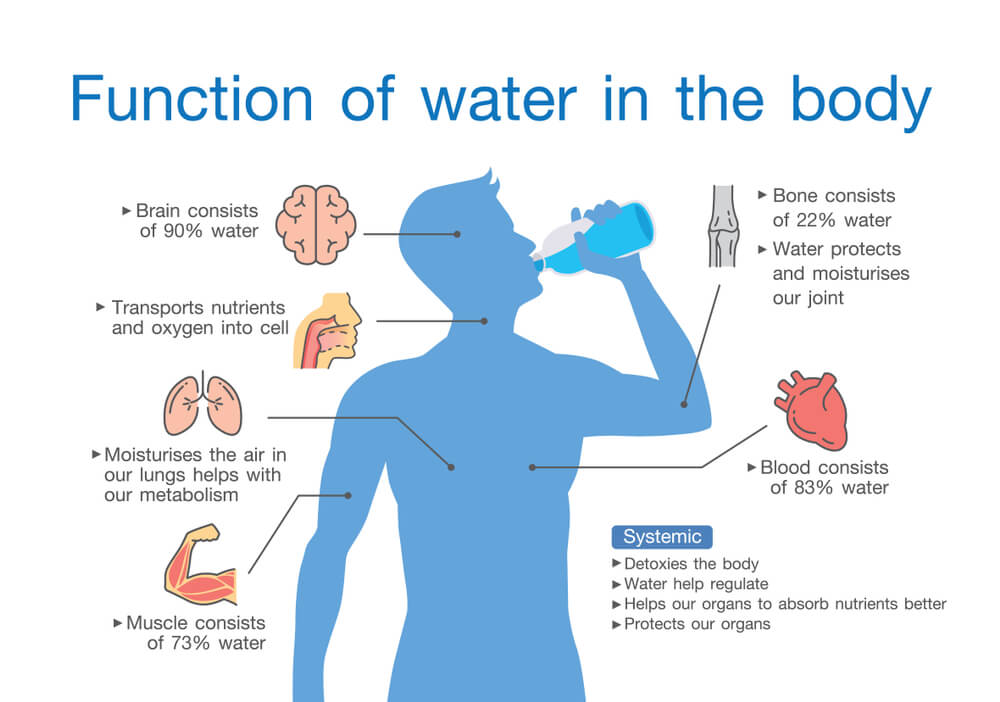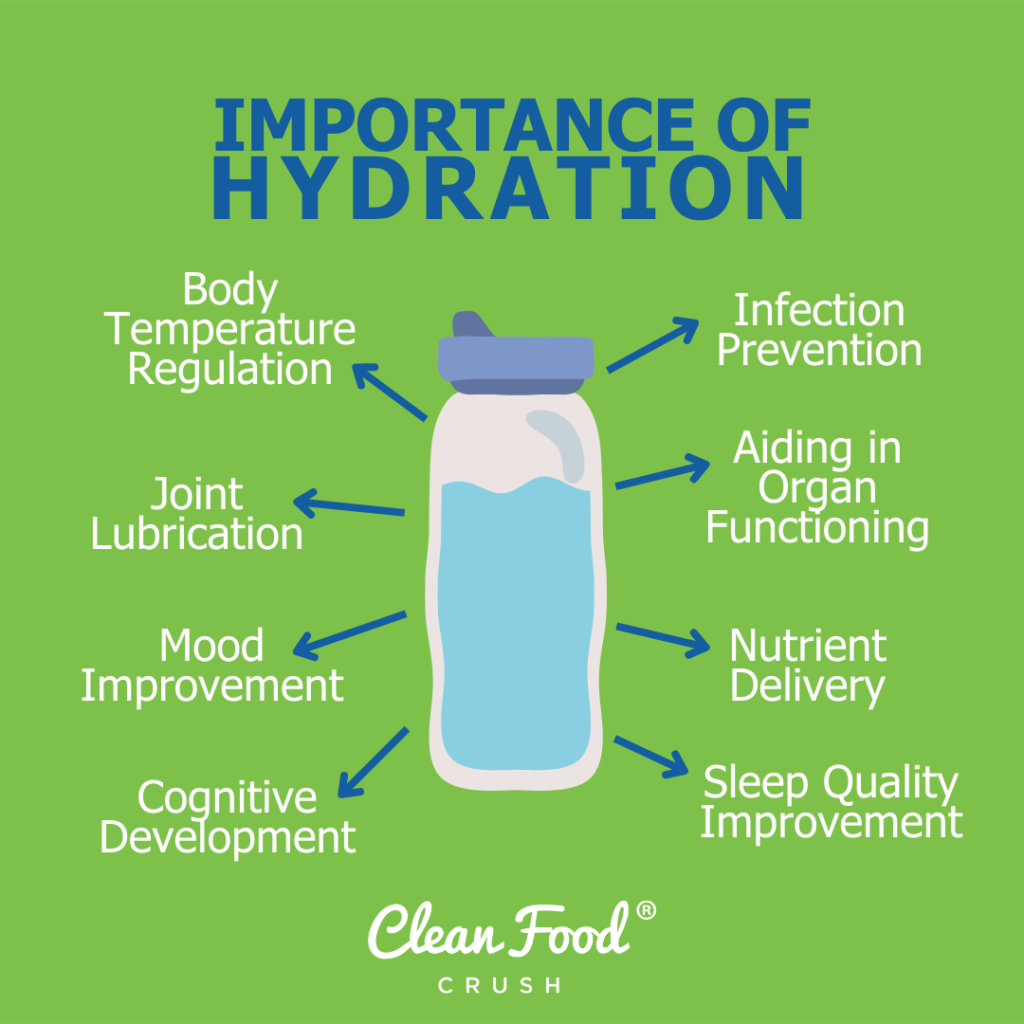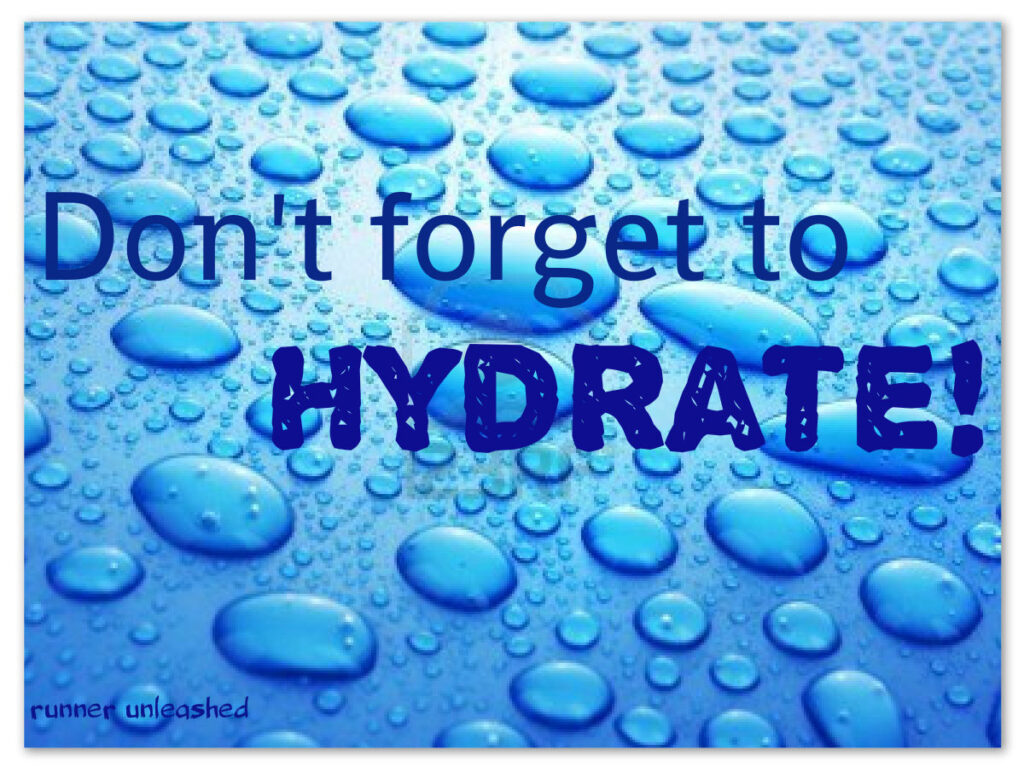Water is necessary for life. You’ve probably heard this before, but do you really understand why? Think of your body as a well-oiled machine, and water as the oil that keeps it running smoothly. When you don’t have enough water, things start to deteriorate, and that’s when problems arise. In this article, you are not only going to explore hydration benefits but you are also gonna find out how you can incorporate it into your busy life.

Water: A Lifesaver for Your Body
The criticality of water for survival Water is the elixir of life. Without it, our bodies cannot function properly, leading to dehydration and potentially life-threatening consequences. Water is essential for various biological processes and must be replenished regularly.

Composition of the Human Body and Water’s Role The human body is made up of various organs, tissues, and cells, all of which require water to function efficiently. Water aids in cellular hydration, maintaining body temperature, and enabling chemical reactions within the body.
How dehydration affects bodily functions When the body doesn’t receive an adequate amount of water, dehydration sets in. Dehydration can lead to fatigue, muscle cramps, dizziness, reduced cognitive function, and even organ failure in severe cases. It is crucial to recognize the signs of dehydration and take prompt action to rehydrate.
The Importance of Hydration
Before we delve into the remarkable effects of staying hydrated, let’s first understand why it’s so crucial to maintain proper hydration levels. Our bodies are composed of around 60% water, and it plays a vital role in various bodily functions. From regulating body temperature to aiding digestion, water is essential for overall well-being.

Hydration Benefits
There are several hydration benefits, some of which are discussed below
Enhanced Physical Performance
When you stay hydrated, your body functions optimally, leading to enhanced physical performance. Proper hydration improves cardiovascular health, allowing your heart to pump blood more efficiently during exercise. It also helps lubricate your joints, reducing the risk of injury.
So, don’t forget to drink enough water before, during, and after your workout sessions to maximize your performance!
Improved Brain Function
Did you know that even mild dehydration can affect your brain function? When you’re dehydrated, your brain can’t function at its best, leading to decreased cognitive performance, difficulty focusing, and impaired memory.
To keep your brain in top shape, it’s essential to stay hydrated throughout the day. The next time you feel a midday slump, reach for a glass of water instead of a caffeinated beverage.
Heart Health and Circulation:
Among other hydration benefits, one is Heart Health and Circulation. Maintaining fluid balance helps with healthy blood volume and circulation. Adequate hydration supports the heart’s ability to pump blood efficiently, delivering oxygen and nutrients to cells throughout the body. It can help reduce the risk of cardiovascular disease.
Weight Management
If you’re on a journey to manage your weight, staying hydrated can be a great ally. Drinking water before meals helps you feel fuller, reducing the chances of overeating. Water has zero calories, making it a healthier choice than sugary beverages that contribute to weight gain.
By replacing high-calorie drinks with water, you can reduce your overall calorie intake and potentially enhance your weight loss efforts.
Clear, Glowing Skin
Who doesn’t want healthy, radiant skin? Drinking enough water can work wonders for your skin’s appearance. Proper hydration helps flush out toxins, promoting a clear complexion and reducing the risk of acne. It also aids in maintaining the skin’s elasticity, preventing dryness and wrinkles.
So, forget expensive skincare products—hydrate your skin from within by drinking an adequate amount of water each day!
Digestive Health
Maintaining proper hydration is essential for a healthy digestive system. Water helps break down food, facilitating digestion and the absorption of essential nutrients. It also prevents constipation by softening the stool and promoting regular bowel movements.
If you often struggle with digestive issues, increasing your water intake could be the simple solution you need to improve your gut health.
Kidney Function and Urinary Health:
Adequate hydration is essential to maintain kidney function. Your kidneys play an important role in filtering waste and toxins from your blood, and they need plenty of water to do this job effectively. Staying hydrated helps prevent kidney stone formation and supports overall urinary health
Boosted Energy Levels
Feeling tired and sluggish? Before reaching for that cup of coffee, consider whether you’re properly hydrated. Dehydration can cause fatigue and low energy levels, impacting your productivity and overall well-being.
By keeping yourself adequately hydrated, you can boost your energy levels and stay more alert throughout the day. So, make sure to have your water bottle within reach to combat that mid-afternoon slump!
Joint Lubrication:
Hydration supports the production of synovial fluid, which lubricates joints and reduces friction between moving parts. This is particularly important for individuals with conditions like arthritis, where joint health is crucial for mobility and comfort.
Immune System Support:
Staying hydrated is an important factor in supporting your immune system. Hydration helps immune cells and antibodies move through your blood, allowing them to reach the areas where they need to fight infection and disease.
Signs of dehydration to watch for
You need to listen to your body. If you notice any of these symptoms, it’s a sign that you may be dehydrated:
Thirst: If you are thirsty, it means that your body needs water. Don’t ignore it.
Dark yellow urine: Your urine should ideally be pale yellow. If it’s deep yellow or amber, you need more water.
Dry mouth and lips: Dry mouth is a sign that you should drink.
Fatigue and Dizziness: Fatigue and dizziness can be the result of not having enough water in your system.
Headaches: Dehydration can trigger headaches, so check your water intake if you suffer from them.
Water-rich food choices
Not all of your hydration needs to come from a water bottle. Many foods are full of water and can contribute to your daily intake. Enjoy fruits like watermelon, oranges and plums as well as vegetables like cucumbers, lettuce and celery.
Setting hydration reminders
Sometimes we get so busy that we forget to drink water. Set reminders on your phone or use apps that can ping you when it’s time to sip.
Adding beverages other than water
While water is the best choice, other beverages can also help you stay hydrated. Herbal teas, low-sugar sports drinks (especially after exercise), and even milk can contribute to your fluid intake. Just be careful with sugary drinks, as they can add extra calories.
Conclusion
Staying hydrated goes beyond quenching your thirst—it offers a multitude of remarkable effects and benefits. From enhanced physical performance to improved brain function, weight management, clear skin, and better digestion, the hydration benefits are undeniable.

Make it a habit to drink enough water throughout the day and reap hydration benefits in body and mind. Remember, prevention is better than cure, so prioritize your hydration and enjoy the positive impact it brings to your life.
FAQ’s
How much water should I drink per day? The general recommendation is to drink about 8 glasses (8 ounces each) of water a day, which totals around 2 liters or half a gallon. However, individual hydration needs can vary based on factors like age, activity level, climate, and health conditions.
Can I substitute water with other beverages to stay hydrated? While water is the best choice for staying hydrated due to its lack of calories, sugar, and additives, other beverages like herbal tea, milk, and certain fruits with high water content can contribute to your hydration. Just be mindful of the sugar and caffeine content in some beverages.
What are the signs of dehydration to look out for? Common signs of dehydration include dark yellow urine, dry mouth, fatigue, dizziness, headache, and reduced urine output. Thirst is also a signal that your body needs more fluids.
Are there any negative effects of overhydration? Overhydration, known as water intoxication, can lead to a condition called hyponatremia, where sodium levels in the blood become dangerously low. This can cause symptoms like nausea, confusion, headache, and in severe cases, even seizures or coma.
How can I ensure my children stay properly hydrated? Encourage your children to drink water regularly throughout the day, especially when they’re active or in hot weather. Provide hydrating foods like fruits and vegetables. Use fun water bottles and set a positive example by staying hydrated yourself.
Is it true that caffeinated beverages dehydrate the body? Caffeine can have a mild diuretic effect, causing increased urine production, but moderate caffeine consumption from sources like coffee or tea doesn’t necessarily lead to significant dehydration. These beverages can still contribute to your daily fluid intake.
What are the best hydration practices for athletes? Athletes should hydrate before, during, and after exercise. Drink water or sports drinks with electrolytes to replace lost fluids and minerals. Monitor fluid loss through sweat and adjust intake accordingly.
Are there any medical conditions that require special hydration considerations? Medical conditions like kidney stones, urinary tract infections, and certain gastrointestinal disorders may require specific hydration recommendations. Always consult a healthcare professional for personalized guidance.
How can I make sure I’m drinking clean and safe water? Use a reliable water source such as filtered tap water or bottled water from reputable brands. Ensure your water containers are clean and properly maintained to prevent contamination.
Are there any hydration myths that need busting? One common myth is that you must drink 8 glasses of water a day. Your hydration needs are more individualized. Another myth is that you should only drink water when you’re thirsty; it’s better to proactively drink throughout the day to prevent dehydration.
Related topics The Power of Water
7 Effective Healthy Lifestyle Tips To Achieve Your Best Health Ever









[…] hydration is vital for overall health, including heart health. Staying well-hydrated ensures optimal blood […]
[…] Stay hydrated: Drink plenty of water before, during, and after your workout. Hydration is essential for maintaining skin elasticity and a healthy […]
[…] diet consisting of macronutrients and micronutrients to fuel their bodies effectively. Adequate hydration is also essential to prevent fatigue and optimize performance. Understanding the nutritional needs […]